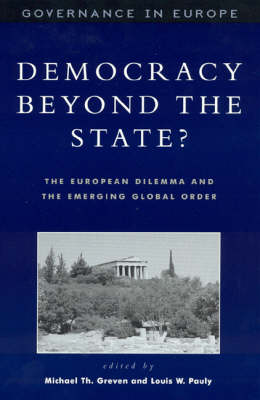Governance in Europe
1 total work
Political authority in today's leading democracies rests on generally shared perceptions by a given people that their government is responsible to them and considers each individual citizen equal under the law. Yet since the dawn of the industrial age, democratic governments have presided over economies that function on the basis of an unequal distribution of real resources. As globalization opens these economies, the gap between legal, ideal and economic reality widens and boundaries separating "the people" of different democracies erode. This thought-provoking book explores the consequent challenge posed for the inherent legitimacy of democratic systems. When distinctive bonds between political power and social obligation break down, that erosion creates "democratic deficits." Pressures build to reconstitute political authority beyond the state, and governance-in-practice grows ever more distant from democracy-in-principle. Nowhere is the deepening dilemma more evident than in the European Union. This book examines the contemporary breakdown and transformation of the democratic welfare state in Europe and draws fascinating contrasts with North America. In a cohesive and insightful collection of essays, a group of distinguished political scientists debates the implications of these trends both for theory and for policy.
